Since the first case of coronavirus was detected in Wuhan, China, in late 2019, the shadow of fear and uncertainty has loomed over businesses all over the world, including in Europe.
A wide range of containment and restrictive measures announced by governments to slow and stem the spread of the virus has opened up an unprecedented chapter in the history of business, and the situation is still unfolding.
Over 145,000 people worldwide have so far been infected, with the hardest-hit countries being China, Italy, Iran, South Korea, and Spain, according to the latest data released by the Center for Systems Science and Engineering at Johns Hopkins University.
Here's a breakdown of the confirmed cases by area in some of the most heavily affected countries as of March 14: China (80,973), Italy (17,660), Iran (11,364), South Korea (8,086), Spain (5,232), Germany (3,675), France (3,667), United States (2,174), Switzerland (1,139), and Norway (996).
More than 5,000 deaths have been reported overall, with the following areas registering the highest number of deaths in the world from COVID-19, the disease caused by the coronavirus: Hubei, China (3,075), Italy (1,266), Iran (514), Spain (133).

However, the good news is that over 71,000 people have recovered, including 52,960 in the Hubei province of China, 2,959 in Iran, and 1,439 in Italy.
The World Health Organization (WHO) has estimated the mortality rate for the virus is about 3.4% globally, which, if correct, means more than 96% of people who become infected will recover.
Far-Reaching Impact
The coronavirus, which has been named by the WHO a global pandemic, has directly and indirectly impacted almost all segments of the economy.
However, the airline, tourism, and hospitality sectors have suffered the brunt of the situation, which has upended daily life for millions of people around the globe.
Shock waves were sent through Europe as U.S. President Donald Trump decided to impose a 30-day travel ban on most visitors from the continent.
The announcement drew the ire of the European Union, which said in a strongly-worded statement, that it "disapproves of the fact that the U.S. decision to impose a travel ban was taken unilaterally and without consultation."
European leaders said they are "taking strong action to limit the spread" of the virus but that it "is a global crisis, not limited to any continent, and it requires cooperation rather than unilateral action."
In his address from the Oval Office, Trump said the source of the epidemic is a "foreign virus" and slammed the EU for having "failed to take the same precautions" as America when it came to restricting travel from China, the source of the outbreak.
EU Situation, Statistics by Continent
According to the statistics released by the European Center for Disease Prevention and Control, an independent agency of the EU, 143,247 cases of COVID-19 have been registered, including 5,407 deaths, since December 31, 2019, and as of March 14, 2020.
Based on its data, the deaths have been reported from China (3,194), Italy (1,268), Iran (514), Spain (121), France (79), South Korea (72), the United States (47), Japan (21), the United Kingdom (10), Iraq (9), international conveyance in Japan (7), Switzerland (7), the Philippines (6), Germany (5), the Netherlands (5), San Marino (5), Indonesia (4), Australia (3), Belgium (3), Algeria (2), Argentina (2), Egypt (2), India (2), Lebanon (2), Poland (2), Albania (1), Austria (1), Bulgaria (1), Canada (1), Ecuador (1), Greece (1), Guyana (1), Ireland (1), Luxembourg (1), Morocco (1), Norway (1), Panama (1), Sweden (1), Taiwan (1), and Thailand (1).
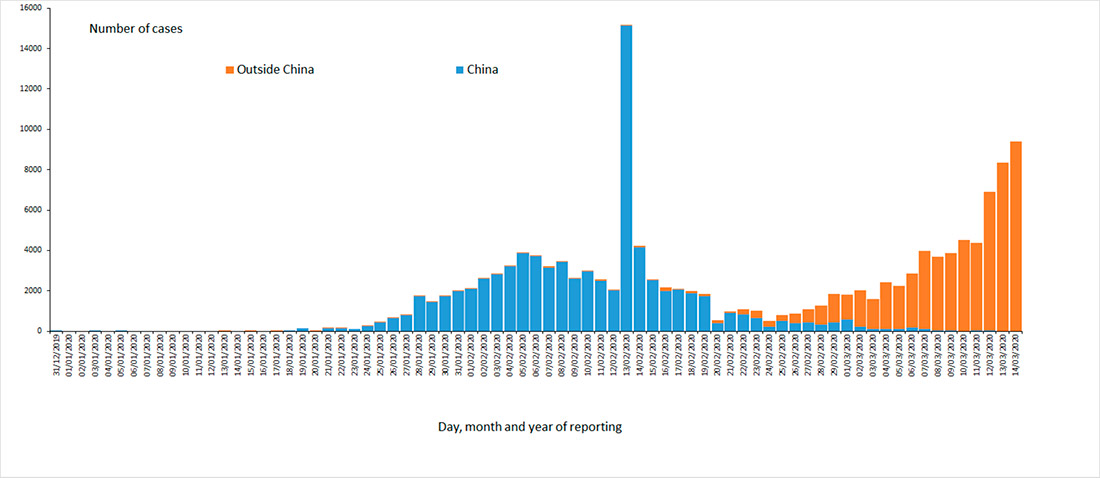
It says 34,790 COVID-19 cases and 1,500 deaths as a result of the disease have been reported in the EU/EEA and the United Kingdom as of March 14, 2020.
Here's a breakdown of the confirmed cases by continent published by the agency, which shows how Europe compares to other areas of the world in terms of coronavirus cases.
Asia [Total number: 103,180]: China (80,973), Iran (11,364), South Korea (8,086), Japan (737), Qatar (320), Bahrain (210), Singapore (200), Malaysia (197), Israel (116), Kuwait (100), Iraq (93), Saudi Arabia (86), the United Arab Emirates (85), India (83), Thailand (82), Indonesia (69), Lebanon (66), Philippines (64), Taiwan (53), Vietnam (49), Brunei Darussalam (37), Palestine (35), Pakistan (21), Oman (20), Maldives (9), Afghanistan (7), Sri Lanka (6), Cambodia (5), Bangladesh (3), Bhutan (1), Jordan (1), Mongolia (1) and Nepal (1).
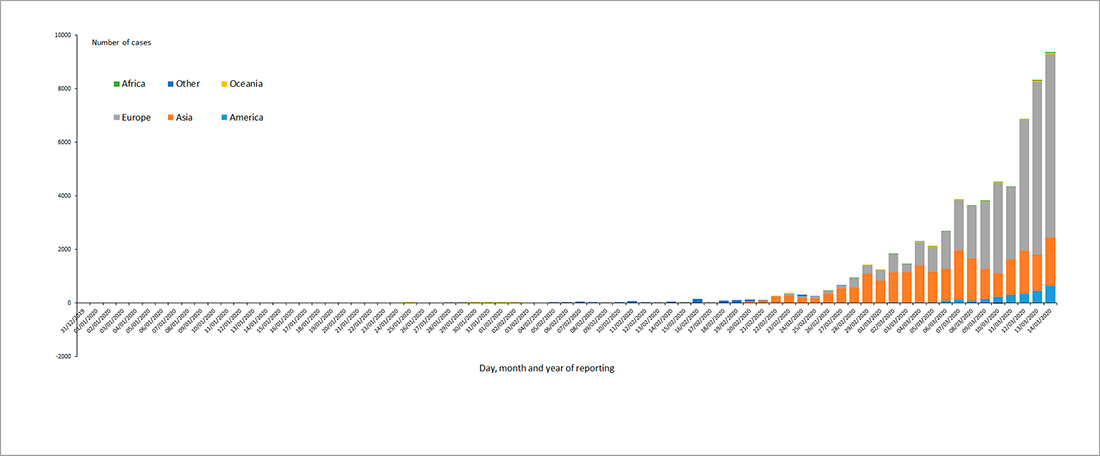
Europe [Total number: 36,229]: Italy (17,660), Spain (4,231), France (3,661), Germany (3,062), Switzerland (1,121), Denmark (804), the Netherlands (804), Sweden (775), the United Kingdom (707), Norway (621), Belgium (559), Austria (504), Greece (190), Finland (155), the Czech Republic (150), Slovenia (141), Iceland (117), Portugal (112), Ireland (91), Romania (89), Estonia (79), San Marino (73), Poland (68), Georgia (46), Russia (45), Serbia (41), Luxembourg (38), Albania (33), Bulgaria (31), Croatia (31), Slovakia (30), Hungary (25), Belarus (21), Latvia (19), Cyprus (14), Armenia (13), Azerbaijan (13), North Macedonia (13), Malta (12), Moldova (8), Lithuania (6), Liechtenstein (4), Bosnia and Herzegovina (3), Ukraine (3), Andorra (2), Turkey (2), the Holy See (1), and Monaco (1).
America [Total number: 2,737]: The United States (2,174), Canada (176), Brazil (98), Chile (43), Peru (38), Panama (36), Argentina (34), Costa Rica (26), Mexico (26), Ecuador (23), Colombia (16), the Dominican Republic (11), Bolivia (10), Jamaica (8), Paraguay (7), Cuba (4), Honduras (3), Trinidad and Tobago (2), Guyana (1), and Saint Vincent and the Grenadines (1).
34,790 COVID-19 cases and 1,500 deaths as a result of the disease have been reported in the EU/EEA and the United Kingdom as of March 14, 2020.
European Center for Disease Prevention and Control
Africa [Total number: 202]: Egypt (93), Algeria (26), South Africa (24), Senegal (19), Tunisia (16), Morocco (7), Burkina Faso (2), Cameroon (2), Democratic Republic of the Congo (2), Ghana (2), Nigeria (2), Côte d'Ivoire (1), Ethiopia (1), Gabon (1), Guinea (1), Kenya (1), Sudan (1) and Togo (1).
Oceania [Total number: 203]: Australia (197) and New Zealand (6).
Other: International conveyance in Japan (696).
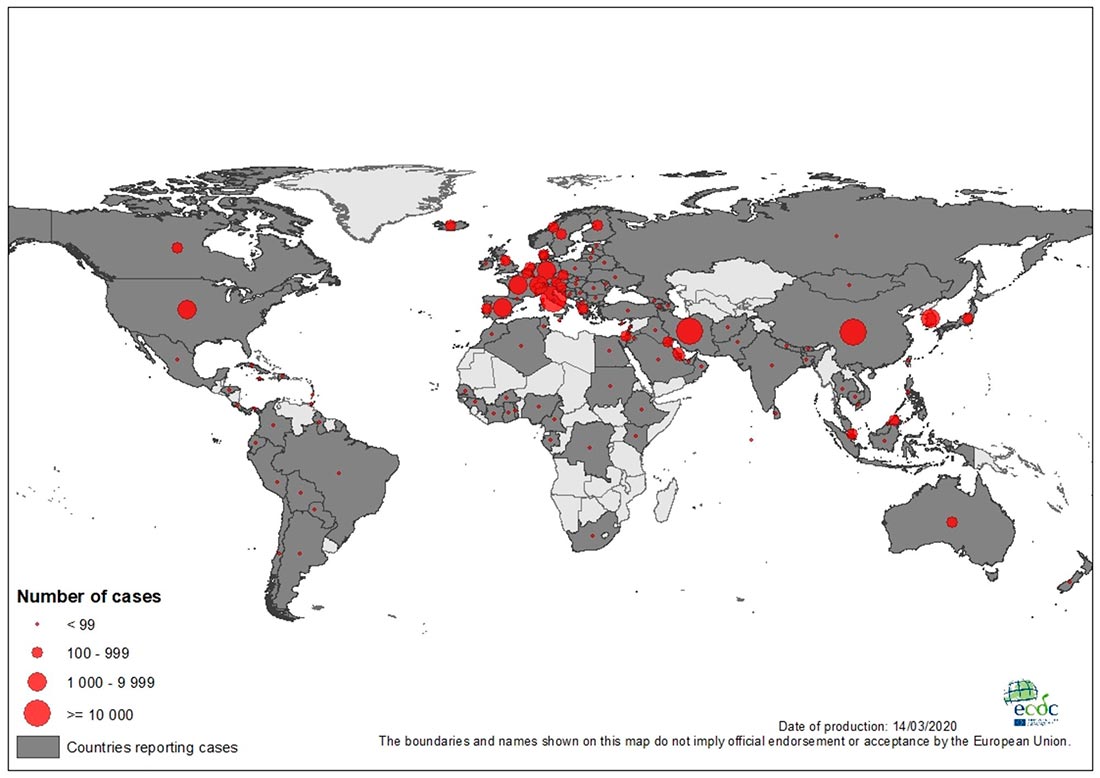
Europe's Contribution to the U.S. Economy
European stocks suffered historic losses after Trump announced restrictions on travel to the U.S. from Europe, a decision that could have significant repercussions for European markets given the intertwined economies of Europe and the United States.
In an exclusive interview with Reuters, Virginia Messina, the managing director of the World Travel and Tourism Council (WTTC), said around 850,000 people travel from Europe to the United States every month, equivalent to a $3.4 billion monthly contribution to the American economy.
European Council President Charles Michel, who chairs the discussions among European heads of state, wrote on Twitter that "economic disruption must be avoided."
Around 850,000 people travel from Europe to the United States every month, contributing $3.4 billion monthly to the U.S. economy.
Virginia Messina, managing director of the World Travel and Tourism Council
Trump's announcement added to the woes of the airline industry, which is already struggling with a host of flight suspensions, cancellations, and disruptions as well as the plunging demand as a result of travel advisories and bans. Shares in airlines have been badly hit.
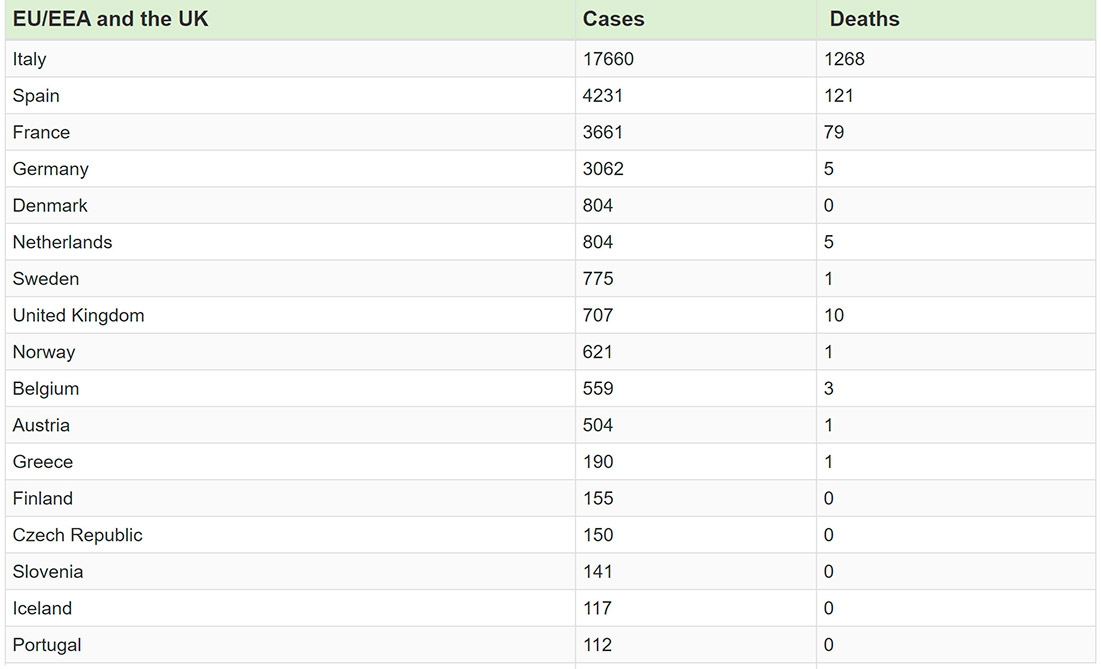
Airline Industry
According to Reuters, Air France expects to cancel 3,600 flights in March, including cutting 25% of its European capacity and reducing long-haul capacity by 13% from initial plans. Its Dutch arm KLM also expects a reduction in long-haul operations on a similar level.
American Airlines is cutting domestic capacity by 7.5% in April and will reduce the international capacity for the summer peak by 10%.
British Airways said its survival was at stake and will have to make job cuts and ground an unprecedented number of planes.
Deutsche Lufthansa announced that it will cut up to half its flights from April across its stable of airlines.
Other airlines have taken similar measures and have warned of sweeping job cuts while ditching their financial outlooks.
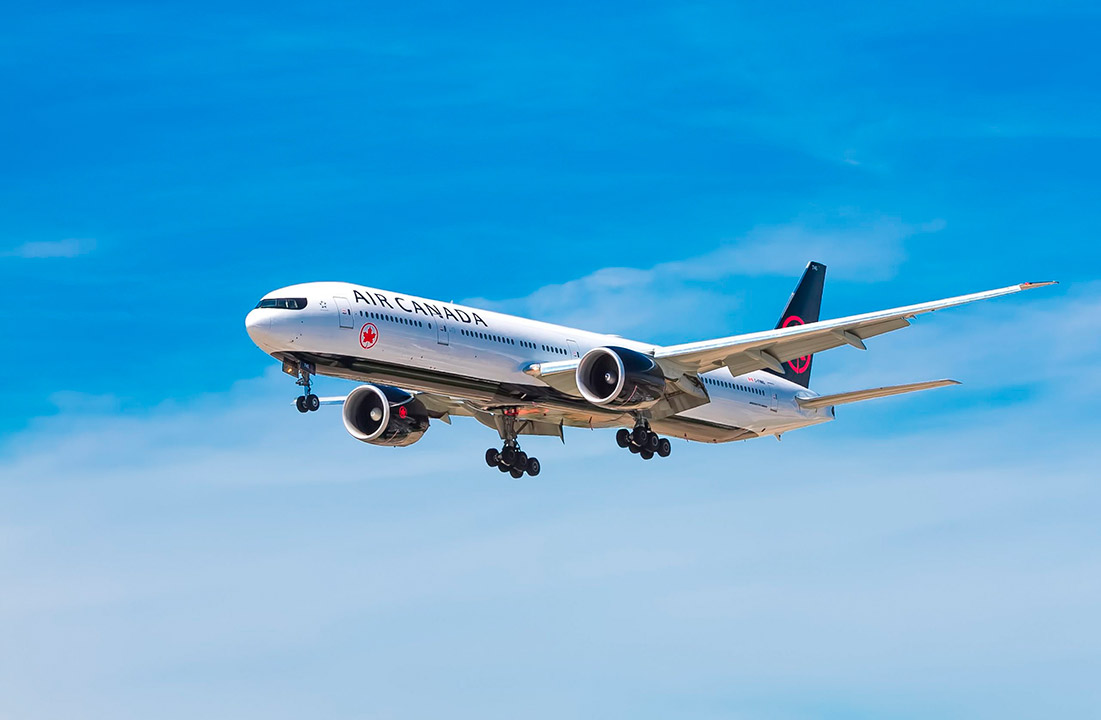
BBC says Chinese airline passenger numbers dropped by 84.5% in February, which, according to Chinese authorities, resulted in a financial loss of 21 billion yuan (€2.7 billion) for the civil aviation industry.
The International Air Transport Association has forecast that the airline industry could lose about $113 billion in a worst-case scenario involving further aggravation of the situation.
In an earlier forecast, the same group had estimated the cost to the airline industry would be $29.3 billion.
The airline industry could lose about $113 billion in a worst-case scenario.
Forecast by International Air Transport Association
MICE Industry
The MICE (meetings, incentive travel, conferences, and exhibitions) industry is another sector that has been hugely impacted.
The long list of previously scheduled events, including those organized by global tech giants, continues to grow. Some companies and organizers have pivoted to digital-only events to minimize the risk of the virus spreading further.
For instance, Apple canceled the in-person version of its annual Worldwide Developers Conference and decided to host the event online over coronavirus-related concerns.
Google canceled its annual Google I/O developers conference, its largest event of the year. Also, Facebook had to cancel the in-person component of its annual F8 conference, which is normally the biggest event of the year for the California social networking giant.

The cancellations underline how COVID-19 is causing increasingly widespread uncertainty and disruption for major businesses.
A March 13 report by The Federal, an Indian-based news portal, said that the cancelation or postponement of over 500 major events across the world over four weeks resulted in a whopping loss of $42 billion for the global MICE industry. The figure could not be independently verified.
Tourism Industry
The slowdown in travel has caused tourism experts to paint a bleak picture of the medium-term future of the sector, which accounts for 10% of the world's GDP and jobs—especially in light of partial border closures and the fact that several countries like India and Thailand have suspended or restricted the issuance of tourist visas.
The managing director of WTTC told Reuters that world travel is likely to slump by 25% this year and the coronavirus epidemic is putting up to 50 million jobs in the global tourism and travel sector at risk.
"Certain measures are not helping and they can prompt the economic impact to be way more significant," Messina said, referring to the U.S. decision.

Tourism Economics, an international journal covering the business aspects of tourism, was cited by CNBC as saying that global travel is expected to fall 9.1% this year, the largest decline ever in the past 40 years it has tracked.
The pain is also being felt by tour guides, street vendors, and others whose jobs depend on visitor spending, mainly in countries whose economies are greatly dependent on tourism.
Other Industries
Supply chains of some large companies around the world, particularly automakers and phone manufacturers, have also been disrupted in recent months as they were forced to temporarily shut their production facilities in affected areas such as China and South Korea. These, according to Reuters, include Apple, Samsung, BMW, Ford Motor, Honda, Hyundai Motor, Nissan Motor, PSA Peugeot Citroen, and Tesla.
A number of these companies recently announced that they plan to resume production in the facilities that had to be closed down earlier.
Some companies have said it is too early to give an estimate of their expected loss and some corporations have postponed the announcement of their financial results.
The ripple effects of the current outbreak of coronavirus could be felt more strongly across all economic sectors in the coming weeks.
The immediate future of business indeed looks grim, but the silver lining is that the world has time and again risen from the ashes of past crises to emerge stronger than ever.

